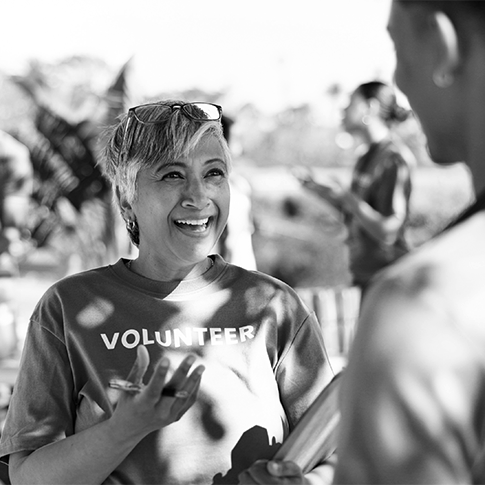Charity Fundraising | Potential VAT Relief

Money raised by charities provides enormous and essential assistance to many sections of society and reflects the dedicated and time-consuming efforts of many unpaid volunteers.
As with most activities involving the raising of funds, it is essential to consider the requirements established by HMRC. In the context of charitable fundraising, particular attention must be paid to the complexities associated with Value Added Tax (VAT). Those responsible for planning and managing such events must ensure that the activity is structured in a manner that either qualifies for the available VAT relief or, where appropriate, does not, depending on the financial arrangements in place.
When a charity fundraising event qualifies for exemption, it is not required to account for VAT on income such as entrance fees. However, it cannot recover the VAT on the related expenses.
Tim Thompson outlines the general position relating to VAT liability and explains how we can assist charities and their trustees in navigating enquiries and investigations by HMRC.
The Relevant Law
Value Added Tax Act 1994 Schedule 9 Exemptions
Fund Raising Events by Charities
This covers the supply of goods and services by a charity in connection with an event:
- that is organised for charitable purposes by a charity or jointly by more than one charity,
- whose primary purpose is the raising of money,
- that is promoted as being primarily for the raising of money.
If these conditions are met, the income generated from the event can qualify for VAT relief.
‘Event’ includes an event which may be accessed, either wholly or partly, by means of electronic communications, which includes an electronic communications network.
‘Charity’ includes a body corporate that is wholly owned by a charity if:
- the body has agreed in writing to transfer its profits, from whatever source, to a charity, or
- the body’s profits, from whatever source, are otherwise payable to a charity.
Events
Important Exclusion
If there are more than fifteen events of the same type, in the same location, within any financial year, the exemption does not apply.
If in a financial year the fifteen events limit is exceeded, none of them will qualify for exemption. This would not be the case if, by planning in advance, the charity holds the event in different locations.
The exemption is not optional. It may be the case that a charity does not want the exemption to automatically apply because, for example, it can charge VAT on the sponsorship and, as a result, recover some of its input tax on expenses. To avoid triggering the automatic exemption, one of the requirements referred to above would have to be deliberately broken.
However, the fifteen events limitation does not apply where the gross takings from all similar events, such as coffee mornings, are no more than £1,000 per week.
Potential VAT Relief for Charities
Events covered
The nature of charitable events falling within the exemption are numerous and include:
- Concerts, stage productions with a paying audience,
- Barn dances, dinners, lunches barbeques,
- Horticultural shows, fêtes and fairs,
- Exhibitions of art, history, or science,
- Bazaar, jumble sale, car boot sale,
- Sporting events such as sponsored walks,
- Game of skill, contest, or a quiz.
- Fireworks display.
The exemption covers the sale of merchandise, sponsorship and advertising in programmes at the event but not after the event when normal VAT rules will apply.
VAT Registration
- There is no requirement for a charity to be VAT registered to obtain relief, but it must be able to prove that it qualifies for the relief to the person selling it goods or services.
- VAT registration is necessary where the taxable turnover exceeds the current threshold.
- Taxable turnover is the total value of everything sold that is not exempt from VAT.
- Even where turnover is below the current threshold, registration for VAT may be considered beneficial where reclaiming VAT on supplies would be beneficial.
VAT Considerations
VAT Rules and Regulations are extremely detailed with complex variations for such matters as, for example:
- venue hire, catering, or speaker fees may be subject to partial exemption rules, meaning the charity might not be able to claim back all VAT paid on these expenses.
- online auctions or virtual events can qualify for VAT, subject to specific requirements,
- the incidence of zero-rating for VAT on certain items may well require separate consideration,
- certain ‘de minimis’ limits for VAT recovery may apply.
How Can We Help?
As outlined above, charitable fundraising events cannot ignore potential VAT implications and require an understanding of the current applicable tax laws. Planning in advance where the number of events to be held may be relevant and consideration of whether the VAT exemption is beneficial.
HMRC will often undertake a compliance check or open an investigation into entities with charitable status. We are able to represent charities and trustees in relation to any enquiry or investigation conducted by HMRC.
The team at KANGS offers many years’ experience handling HMRC disputes of every nature and would be delighted to hear from you.
Tel: 0333 370 4333
Email: info@kangssolicitors.co.uk
We provide initial no obligation discussion at our three offices in London, Birmingham, and Manchester. Alternatively, discussions can be held through video conferencing or telephone.
Top ranked by leading legal directories Chambers UK and the Legal 500.







